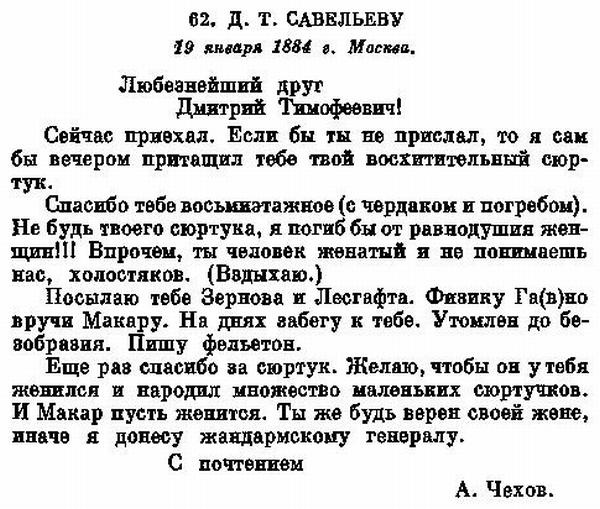Dialogs about letters
There are many rules of written communication related to the design and content of messages in business correspondence, but there are no less important principles that govern written language. And this, of course, is the rule of the Russian language.
In this article, employees of the Copywriting Department of the Krasnodar studio Plarium ask the question "How to write business letters?" And they themselves answer how and why.

- Why not write “Good day!”?
- To answer this question, recall the cases of the Russian language. By tradition, a genitive case is used for farewell: [I wish] a good day, good night . And for the greeting - the nominative: good afternoon, good morning . With the development of the media industry it started: “Good night” appeared on the night airs (you can’t say the same thing when greeting “Good night!”, Really). With the advent of the Internet, “Good time of day” was also used as a greeting, which is also a mistake.
- Why is a comma needed in one case and not in another?
- In the first case, we are dealing with a supplement word. It answers the questions of indirect cases (whom? To whom? By whom? About whom?).
Hello (to whom?) Everyone!
In the second case, “Masha” is a treatment, which, according to the rule, is separated by a comma.
Hi, (who?) Masha!
With confusion, a gross punctuation error occurs, ay-ay-ay.

From the site 301-1.ru
- And there are rules? It is important?
- Of course! For example, you contact a colleague or contractor and spell his last name incorrectly. Will this benefit business relationships?
Here are a few rules to avoid this situation:
- Are there any unobvious rules?
- There are rules suitable for the design of texts. If you break them, there will be no great sin, it’s not for you, which for someone sensitive can become the last straw. Nevertheless, the general impression of an under-formatted text may deteriorate.
1. Do not confuse hyphen and dash
A hyphen is used inside complex words.
Anyone somewhere firstly
Dash is used inside sentences (typed by alt + 0151).
Moscow is the capital of Russia.
- Few pay attention to this.
- If the text is neat, nobody really notices it. But we achieve just the smoothness of perception. If there is any disagreement in something, it is felt when reading.
- Okay.
2. Avoid the abundance of punctuation marks
- The reason is simple: we all read intonation from punctuation marks, and ellipsis and exclamation are examples of strong, pronounced emotions that translate correspondence into highly expressive status, and correspondence ceases to be business. The caps does the same.

From the site 301-1.ru
- By the way, there are texts in which there are no signs other than ellipses.
“And the impression of such texts is far from what impression letters should make on your colleagues.” =)
3. Be careful with the names of the holidays
Few people know, but the uppercase / lowercase letter in them is also governed by the rule: only the first word is written with a capital (if the name has a proper name, then it, of course, is also written with a capital).
Navy Day
Valentine's Day
New Year
There are special holidays in which not only the first word is spelled with great - and this is the influence of tradition.
Victory Day
“Is that all you need to remember?”
- It’s important to remember this: if it’s a holiday, it doesn’t mean that everything should be spelled out in its name. And one more thing: if you are wondering how to spell “birthday” correctly, it’s important to know that this holiday is not considered a holiday in Russian - a capital letter is generally not needed.
- But this is insulting ...
- Here everyone decides for himself on whose side he is opposed to the rules of the language and writing traditions. But it is important to know how to write correctly.
In our post, the idea of opposing the rules and traditions of writing has already slipped through. This battle has been going on for a long time. The traces of one of these battles are in the letters of each of us. According to the rules of Russian punctuation, the comma after “Sincerely ...” and similar formulas should not be put. But there is a tradition of setting a comma, which we adopted from the rules of foreign correspondence. How do you like that? =)

From the site multiurok.ru/blog
There are blogs about the Russian language, which can not be silent. For this post we selected thematic publications from the page "Great Russian" on Instagram:
Deadly Sins in Business Speech
"My portfolio" is not a mistake
What to write in the note to the sick leave
Painting vs signature
Where to write initials - before last name or after
Now you know everything, but this is inaccurate. Have a nice chat!
In this article, employees of the Copywriting Department of the Krasnodar studio Plarium ask the question "How to write business letters?" And they themselves answer how and why.

Greeting
- Why not write “Good day!”?
- To answer this question, recall the cases of the Russian language. By tradition, a genitive case is used for farewell: [I wish] a good day, good night . And for the greeting - the nominative: good afternoon, good morning . With the development of the media industry it started: “Good night” appeared on the night airs (you can’t say the same thing when greeting “Good night!”, Really). With the advent of the Internet, “Good time of day” was also used as a greeting, which is also a mistake.
“Hello everyone!” And “Hello, Masha!”
- Why is a comma needed in one case and not in another?
- In the first case, we are dealing with a supplement word. It answers the questions of indirect cases (whom? To whom? By whom? About whom?).
Hello (to whom?) Everyone!
In the second case, “Masha” is a treatment, which, according to the rule, is separated by a comma.
Hi, (who?) Masha!
With confusion, a gross punctuation error occurs, ay-ay-ay.

From the site 301-1.ru
Declination of surnames
- And there are rules? It is important?
- Of course! For example, you contact a colleague or contractor and spell his last name incorrectly. Will this benefit business relationships?
Here are a few rules to avoid this situation:
- The surnames in -ago, -aco, -iago, -s, -i, -ovo, Shambinago, Plevako, Dubyago, Red, Dolgikh, Durnovo are not inclined.
- In most cases, foreign surnames are inclined to unstressed -a, -i. For example: the work of Pablo Neruda, the songs of Bulat Okudzhava, the films of Akira Kurosawa.
- Russian and foreign surnames ending in a consonant sound are inclined if referring to men, and are not inclined if referring to women or to a married couple. For example: a statement by Anatoly Fedorchuk, a letter from Olga Fedorchuk, a request from the spouses Fedorchuk. Deviations from the rule are observed in those cases when the surname is consonant with the name of the animal or object (Goose, Belt), in order to avoid unusual or curious combinations, for example: “With Mr. Goose”, “Citizen Belt”. Often in such cases, in the official business speech, the surname is retained in the initial form (cf .: train with Stanislav Zhuk).
Rules for writing a letter
- Are there any unobvious rules?
- There are rules suitable for the design of texts. If you break them, there will be no great sin, it’s not for you, which for someone sensitive can become the last straw. Nevertheless, the general impression of an under-formatted text may deteriorate.
1. Do not confuse hyphen and dash
A hyphen is used inside complex words.
Anyone somewhere firstly
Dash is used inside sentences (typed by alt + 0151).
Moscow is the capital of Russia.
- Few pay attention to this.
- If the text is neat, nobody really notices it. But we achieve just the smoothness of perception. If there is any disagreement in something, it is felt when reading.
- Okay.
2. Avoid the abundance of punctuation marks
- The reason is simple: we all read intonation from punctuation marks, and ellipsis and exclamation are examples of strong, pronounced emotions that translate correspondence into highly expressive status, and correspondence ceases to be business. The caps does the same.

From the site 301-1.ru
- By the way, there are texts in which there are no signs other than ellipses.
“And the impression of such texts is far from what impression letters should make on your colleagues.” =)
3. Be careful with the names of the holidays
Few people know, but the uppercase / lowercase letter in them is also governed by the rule: only the first word is written with a capital (if the name has a proper name, then it, of course, is also written with a capital).
Navy Day
Valentine's Day
New Year
There are special holidays in which not only the first word is spelled with great - and this is the influence of tradition.
Victory Day
“Is that all you need to remember?”
- It’s important to remember this: if it’s a holiday, it doesn’t mean that everything should be spelled out in its name. And one more thing: if you are wondering how to spell “birthday” correctly, it’s important to know that this holiday is not considered a holiday in Russian - a capital letter is generally not needed.
- But this is insulting ...
- Here everyone decides for himself on whose side he is opposed to the rules of the language and writing traditions. But it is important to know how to write correctly.
And finally
In our post, the idea of opposing the rules and traditions of writing has already slipped through. This battle has been going on for a long time. The traces of one of these battles are in the letters of each of us. According to the rules of Russian punctuation, the comma after “Sincerely ...” and similar formulas should not be put. But there is a tradition of setting a comma, which we adopted from the rules of foreign correspondence. How do you like that? =)

From the site multiurok.ru/blog
What to read
There are blogs about the Russian language, which can not be silent. For this post we selected thematic publications from the page "Great Russian" on Instagram:
Deadly Sins in Business Speech
"My portfolio" is not a mistake
What to write in the note to the sick leave
Painting vs signature
Where to write initials - before last name or after
Now you know everything, but this is inaccurate. Have a nice chat!
All Articles